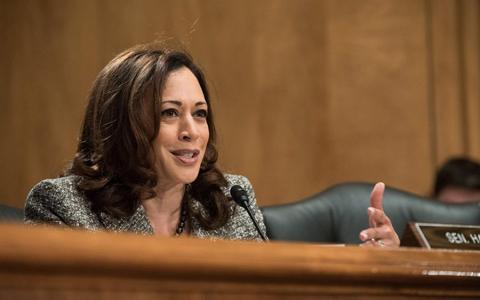
The world didn’t end. Time to get back to work steering clients to better long-term outcomes.
The biggest headline in my world over the weekend came from the Financial Services Institute, which many of you know as one of the industry’s most prominent lobbying organizations.
FSI hasn’t always seen eye to eye with any presidential administration. They protest when new regulations are onerous or unfair, but they have yet to reject the process outright.
They work within the system because there’s value in the status quo. They issued a press release congratulating Biden and Harris because they see people they can work with on all sides of the political aisle.
Their aim is to “defend Main Street Americans’ access to sound professional advice, as well as their ability to plan for retirement, pay for their kids’ education and achieve their other financial goals.” We often bicker internally over implementation but that’s a great way to sum up the industry.
It’s about doing the best we can to stretch client resources to support better outcomes. Retirement and education are the biggest goals for most, but once those accounts are funded, the process really boils down to defining dreams and working to make them happen under realistic projected conditions.
There’s nothing about politics there. And there’s nothing about the end of the world.
A little over a week ago, I was on conference calls while normally cheerful Wall Street people speculated about mass riots and armed revolt on the horizon. As far as they were concerned, we were closer than ever to total meltdown.
It didn’t happen. No matter how the votes stack, the social framework is more resilient than we thought. That’s a big deal.
“Bigger things to worry about”
Apocalyptic scenarios almost never come true. Natural catastrophes and market crashes happen. Depending on where you’re standing, society gets better or worse.
We prepare for disappointment and disruption with an eye toward the recovery on the other side. Bad things happen and then we help clients pick up the pieces.
Crisis management is part of the job. A good advisor hedges against bad news, prepares contingency plans to mitigate the impact and get clients back up again when they stumble.
But the odds of complete and final collapse are so low that it just isn’t worth preparing for that kind of scenario.
As we used to say, “if that happens, we all have bigger things to worry about than the retirement accounts.” Worry all you want, but they’re not productive worries.
They don’t contribute to meaningful action. And I think a lot of the disaster mentality we’ve seen in this year of pandemic disruption has not been meaningful.
When stores board up their windows going into the election, it’s a prudent risk reduction move. The proprietors don’t liquidate the inventory and walk away.
I think a lot of people on Wall Street and throughout the wealth management world got close to walking away. It didn’t take the form of an outright abdication of responsibility, but the passivity in the face of an unpredictable future sometimes added up to the same thing.
The business of America
FSI, on the other hand, kept its eye on the ball. They’re banking on continuity. Life will go on like it always has in this country. The details shift but the themes really don’t.
People are people. Money moves in historically validated patterns. Statistics converge toward means to create a sense of “average.” Math bends but doesn’t break.
After a pandemic year, it can take time for confidence in all of these things to heal. But everything else is really the noise created when inputs change without warning.
It’s called life. It’s what happens to make us change the financial plans we create for others and the professional plans we create for ourselves.
Clients always need to have someone making the best possible choices for them with the information we have. They’re getting older day by day. Life goes on.
Every day of delay and indecision takes many of them closer to dying before they get to enjoy the benefit of their resources. In that event, their remaining wealth moves on to the next generation, which will have its own needs.
What happens next year? Warren Buffett will keep making money until they carry him out. The market will create a fresh set of data points to average out against the past and ultimately point the way to the future.
Washington will tinker with the details, shifting a percentage point here or closing a loophole there. Sometimes the moves are bigger than others, but that usually happens under political conditions very different from the ones we’re looking at now.
Over the long term, the policy adjustments even out. We can see the trend and plug it into our math. Some anticipated client outcomes will close. Others will open up. We keep our eyes open.
Regulations come and go. Presidents normally don’t rule by fiat. There’s a process where bureaucrats take years to do anything. I’ve met these people. They don’t like disruption. They rarely want to waste your time forcing you to make disruptive changes to the way you operate.
Cabinet members normally don’t rule like literal czars. They don’t set policy. If they try, a functioning system pushes back and their rhetoric evaporates.
Put Bernie Sanders in DOL. He still won’t be able to pull the plug on the retirement system and he doesn’t care about advisory regulation.
Put Liz Warren in Treasury and she won’t have any swing on interest rates . . . which are grindingly low now anyway. Banks are already bleeding.
Imagine your nightmare scenario, whatever it is. Plan for it if you like, but remember what really matters.
The virus matters. The Fed matters. The Treasury’s credit rating. Animal spirits. Did any of them change last week? The market seems happy.
Next election, things might shift again. That's years away now. Let's use the time we have meanwhile.



